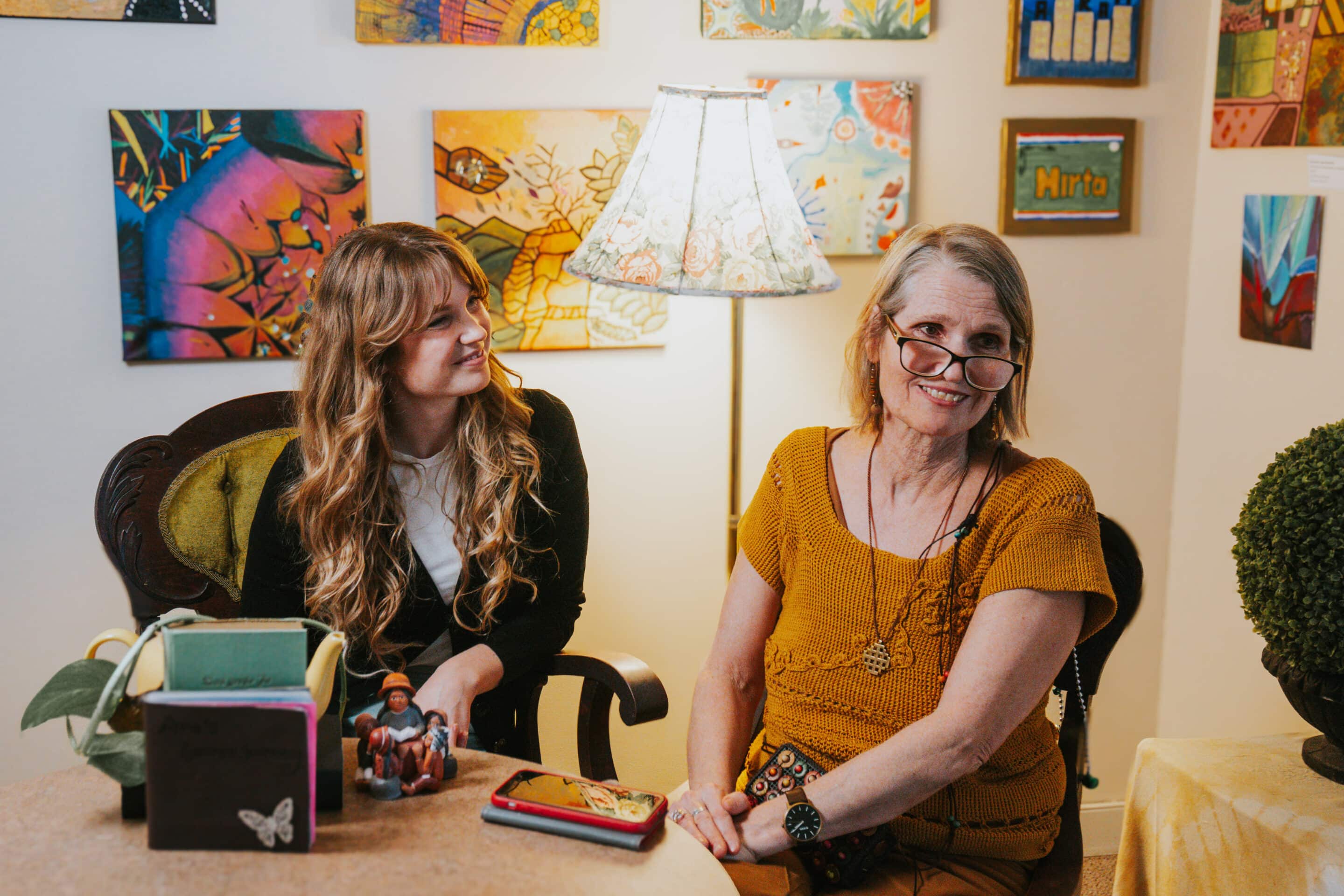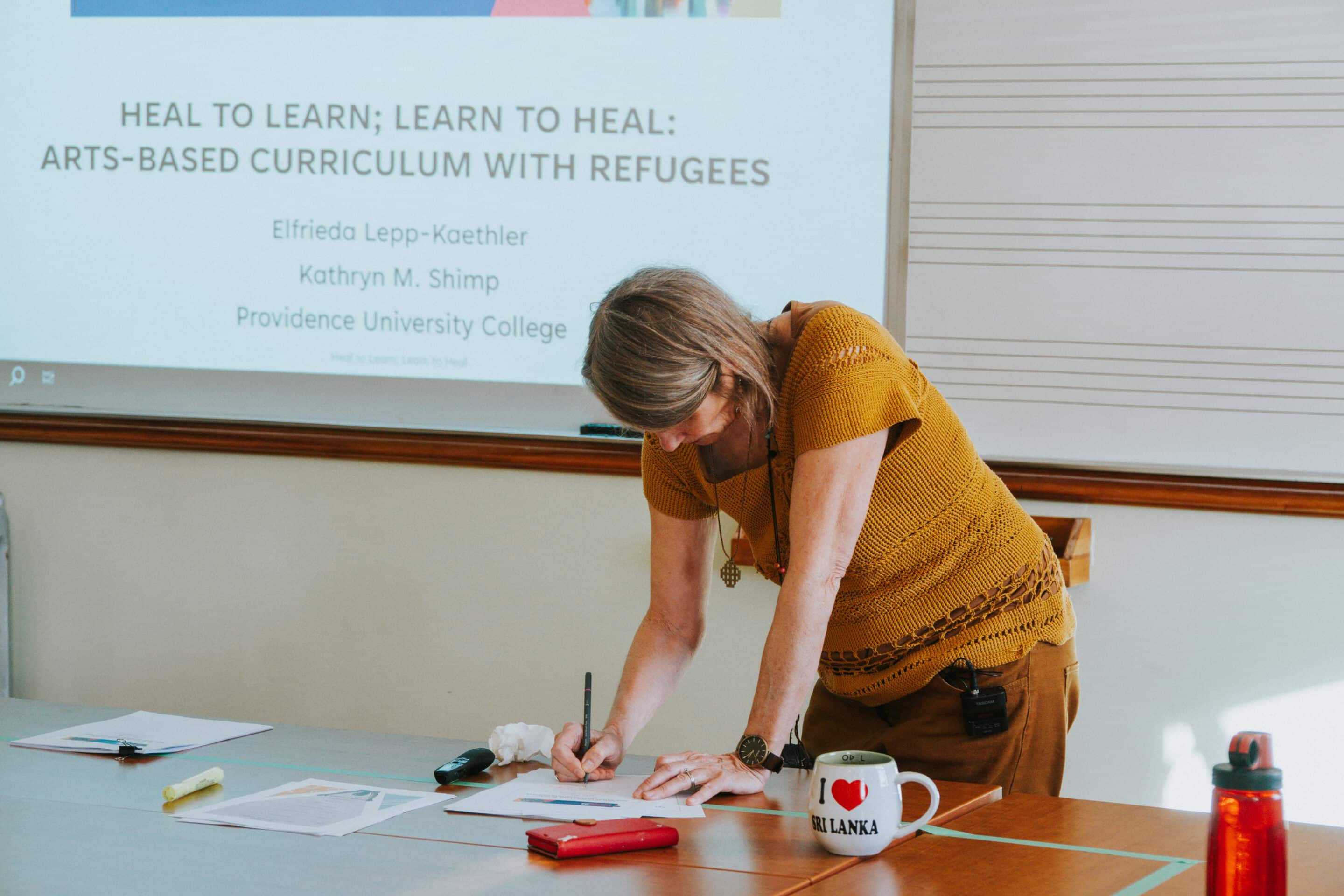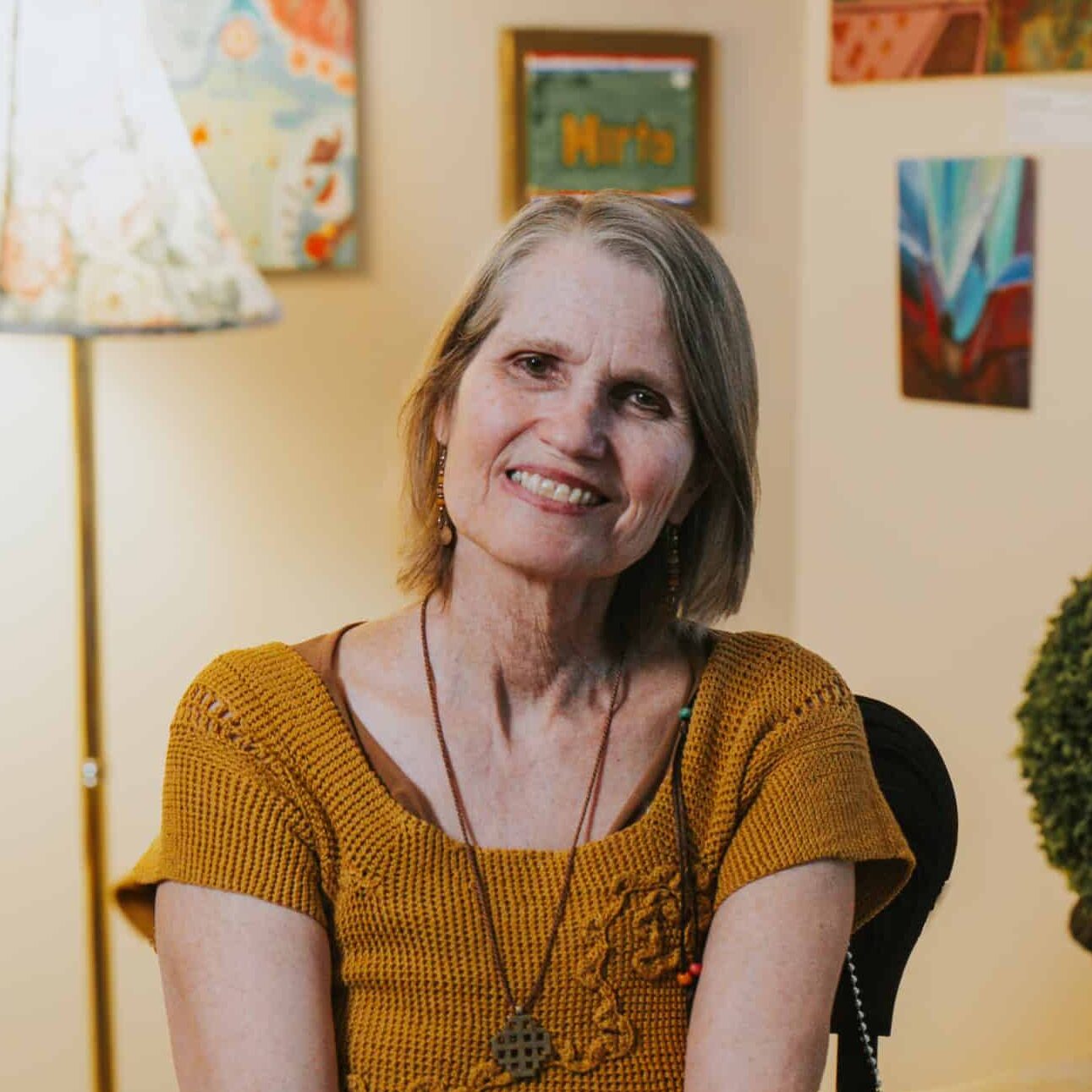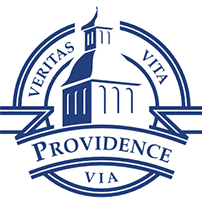From drawing and painting, to creative movement and drama, to writing and music, art is a universal language that not only connects people and is central to culture, but is extremely effective for learning. Especially when dealing with pain and distress, artistic expression can be an invaluable tool when it comes to communication. “When someone experiences trauma, their brain basically goes offline,” shares Dr. Lepp-Kaethler. “They go into the fight, flight, freeze zones, and so their brain is literally not in any condition to learn. What arts-based learning does is bring people back into what we call the ‘green zone.’ The ‘red zone’ is fight or flight. The ‘blue zone’ is freeze. And as we invite students to enter into arts-based experiences, research has shown that it reduces stress symptoms and allows them to come back into a position that we call the ‘learning brain.’”
The place of art became central for professor Lepp-Kaethler during a difficult season in her family’s personal life, at which time she and her daughter took up painting. It became an outlet for conversation and connection that she would then integrate into her classes at Providence as well as through the international work that she has been involved with over the past number of years with the Non-Governmental Organization TeachBeyond. One branch of this NGO is called Beyond Borders, whose mission is to “extend Christ’s love beyond borders, providing transformational education with those who are displaced.”

“It was Katy that introduced me to the idea of incorporating expressive arts into language learning and teaching,” said Lepp-Kaethler, “and I now integrate it into pretty much every course that I teach.” Like the classes “Language Curriculum Development” and “Assessment Placement and Evaluation in Language Programs,” where current students at Providence are themselves able to be involved in creating resources that are being tested and refined in important situations like what’s taking place at the refugee camp in Greece with Beyond Borders. It is this type of practical and meaningful learning that takes place at Providence every year – facilitated by professors like Dr. Elfrieda Lepp-Kaethler – that is making a real difference in the lives of people locally and globally.
For more information about the Teaching English to Speakers of Other Languages and Training Teachers of English to Speakers of Other Languages programs offered at Providence, visit our TESOL and TTESOL pages. And to learn more about the ongoing work that’s happening through Beyond Borders, visit teachbeyond.org/go/beyond-borders.

“Art is such a catalyst for learning. It brings concepts off the page into the classroom and into people’s lives. It’s almost magical what happens. And I’ve had such a positive response from students and from others” – Dr. Elfrieda Lepp-Kaethler


